Femia > Health Library > Your cycle > Sex > Can you get pregnant after your period? Understanding your fertility window
Can you get pregnant after your period? Understanding your fertility window
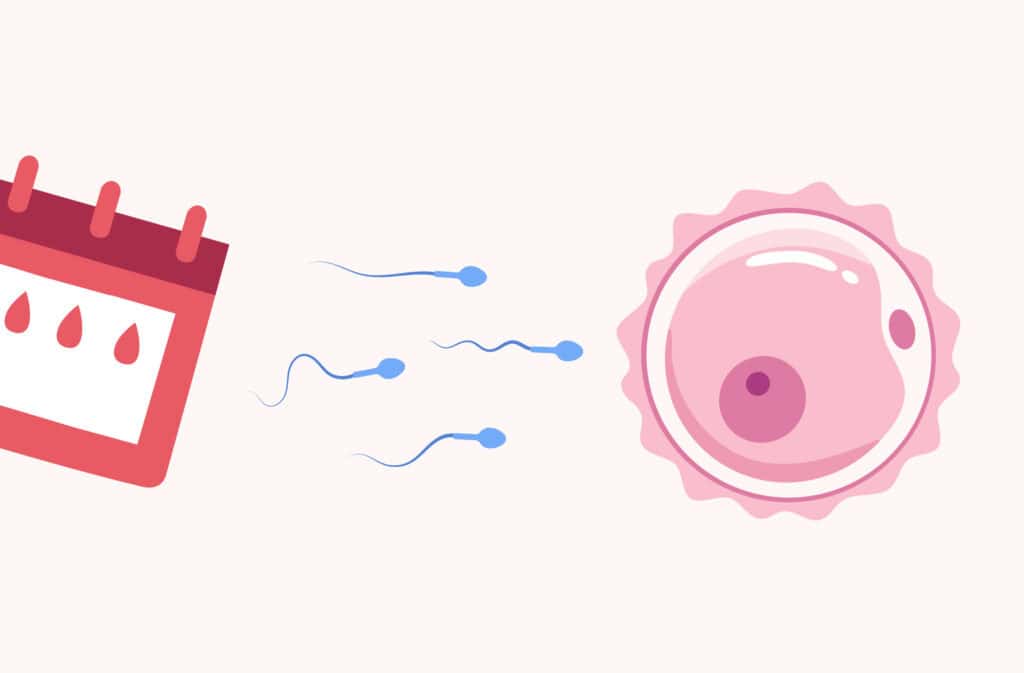
- Updated Feb 10, 2025
- Published
CRAFTED BY HUMAN
Crafted by human At Femia, we provide accurate and up-to-date information at every stage of your journey, from trying to conceive, pregnancy and postnatal support. All content is created by a real person based on in-depth research and own professional experience. Femia ensures that you will receive expert advice, strict accuracy and a personalized approach from our authors/medical experts. Learn more about our editorial policy.
FACT CHECKED
Fact checked At Femia Health, we maintain the highest standards of editorial excellence in delivering content focused on helping you conceive, guiding you through pregnancy, and supporting you postpartum. Explore our content review principles to learn how we ensure the accuracy and quality of our health and lifestyle tips for every stage of your journey.
Pregnancy can happen soon after your period, especially if you have a longer period or a short menstrual cycle. It’s not common, but it’s possible.
The length of your period, menstrual cycle length, and how regular your cycles are all contribute to answering the question “how soon after your period can you get pregnant?”.
Having longer periods and shorter menstrual cycles increases the chances of getting pregnant after your period significantly. If you do not wish to conceive, tracking your menstrual cycles and opting for reliable contraception can lower your chances of getting pregnant right after your period.
Can you get pregnant after your period?
Yes. It is possible, especially for those who have short menstrual cycles.
Conception can happen after unprotected sex as early as five days before ovulation. A short follicular phase (first phase of your menstrual cycle) can result in ovulation very soon after your period ends. The chance is especially higher if you have had a period lasting for longer than seven days.
However, normal cycle lengths average around 28–30 days, so ovulation would take place around day 14–16 of the cycle, which is much later than the average length of a normal period. This means that with an average cycle length, you are unlikely to get pregnant right after your period.
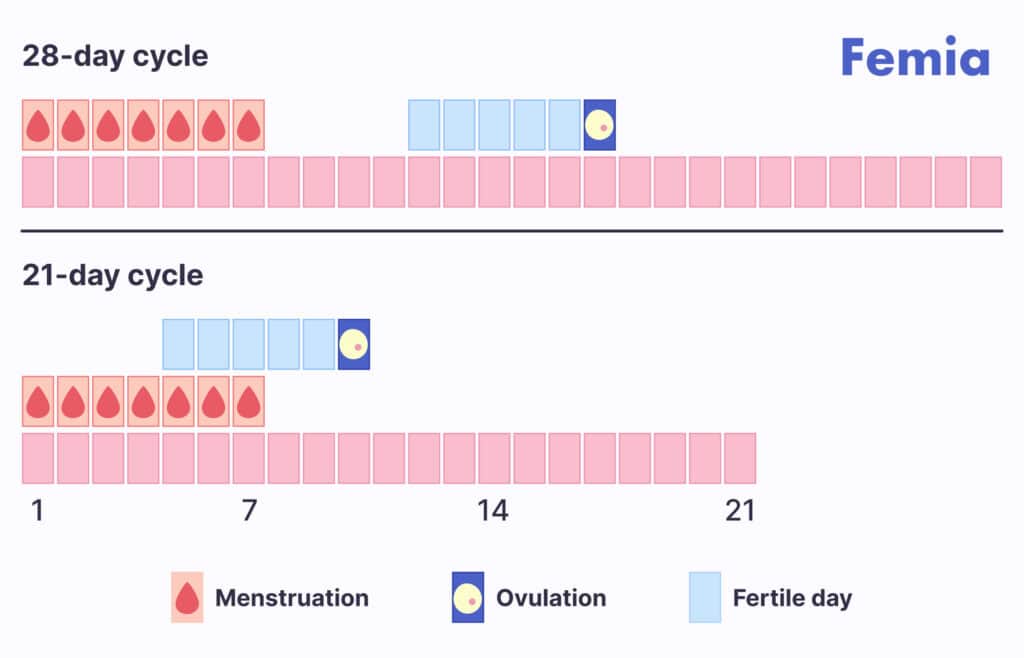
@femia.fertility Absolutely! However, the chances are minimal depending on the length of your menstrual cycle and period duration. Planning your 'baby dance' during your fertile window is a great start if you want to increase your odds of conceiving. Join us to discover natural ways to boost your fertility with proven hacks for conceiving ❤️ #fertility #highfertility #ttc #periodtok #fertilitydoctor #fertilityawareness ♬ Carmen Habanera, classical opera(1283412) - perfectpanda
Factors influencing fertility after your period
- Your cycle length. But even for shorter cycles, it takes a while for your ovarian follicles to develop and prepare an egg for ovulation. So, the chances for most women are low (though not zero) for conceiving right after a period.
- Your period length. The chances of getting pregnant right after a long period are higher, as ovulation could occur soon after it ends.
- Sperm survival in the uterus. Unprotected sex right after your period can still result in conception even if ovulation takes place a few days later.
Femia offers the most accurate tool for determining fertile days
How many days after your period can you get pregnant?
If you regularly use a period tracker to track your menstrual cycles, your tracker will provide an estimate of your fertile window and ovulation every month.
You are most likely to get pregnant while having sex during this fertile window. And, for women with shorter cycles, this fertile window can coincide or happen soon after a period.
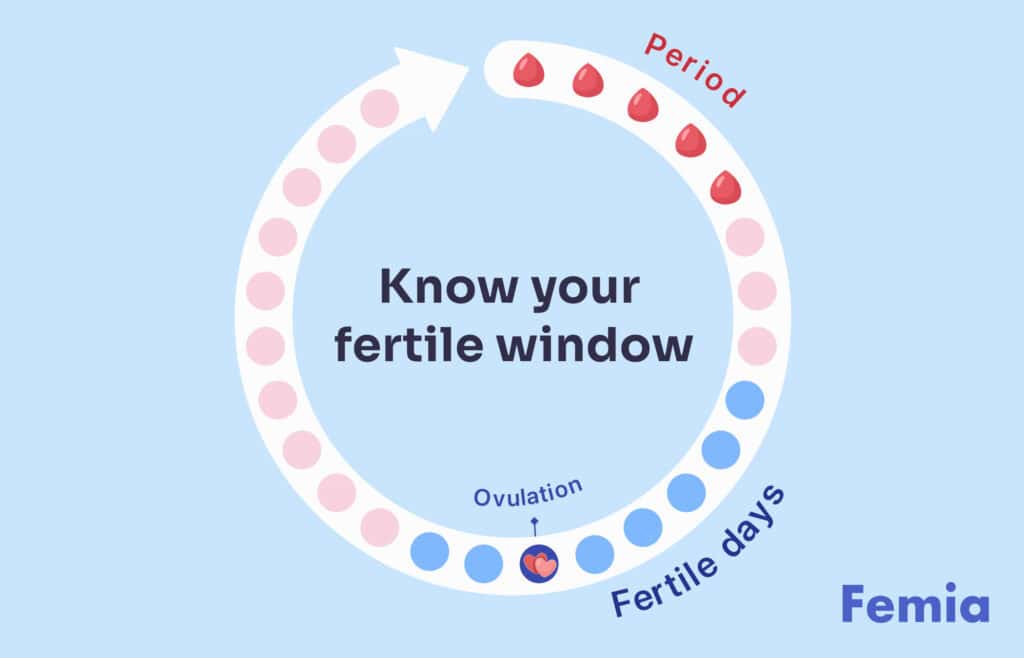
👉Find out more: Does stomach pain after sex mean your pregnant?
Can you get pregnant on the last day of your period?
In any cycle, you have a chance of ovulating early and becoming pregnant on the last day of your period. This chance is very low for most women, but becomes increasingly likely if you have had a period lasting 7–10 days.
Can you get pregnant on the first day of your period?
You are not very likely to get pregnant on the first day of your period.
However, not all bleeding is considered to be a period. In some cases, bleeding or spotting can be noticed around ovulation. If this takes place later in your cycle, closer to your period date, you might mark it as the first day of your period. During this time, you would have the highest chance of conceiving.
Questions from the Femia community
Can you get pregnant a week after your period?
Yes, you can get pregnant a week after your period. For most cycles, ovulation takes place around days 10–16 of the menstrual cycle, which is approximately a week after most periods end. This fertile window differs based on the length of your menstrual cycles.
How can I improve my chances of getting pregnant after my period?
To increase your chances of getting pregnant after your period, you should regularly track your menstrual cycles to accurately predict your fertile window. Depending on the length and regularity of your menstrual cycle, your fertile window can differ. Having sex every other day after your period, especially in your fertile window, improves your chances of getting pregnant.
Can certain medications affect my ability to get pregnant after my period?
Yes, medications can affect your ability to conceive. For one, hormonal contraception reduces your chances of getting pregnant after your period. Prescription medication can also impact your menstrual cycles, affecting ovulation and your chances of getting pregnant. If you are considering pregnancy while on medication, consult with your healthcare provider.
👉Find out more: Can Mucinex help you get pregnant? How to use it for better fertility
How soon after my period can I take a pregnancy test to check if I am pregnant?
You can take a pregnancy test right after your period ends, or even during your period if you suspect that you are pregnant. Having a period doesn’t affect the outcome of a pregnancy test, as it checks for the pregnancy hCG hormone in urine. If you want to confirm pregnancy, it is best to consult with your healthcare provider for more accurate testing.
👉Find out more: How soon after unprotected sex can I test for pregnancy?
The bottom line
Getting pregnant right after your period is possible, but not common. Many factors contribute to the likelihood of conceiving soon after your period. The length of your period, menstrual cycle length, regularity of your cycles, and how long sperm survives in the uterus are the most crucial of these factors. Both shorter cycles and longer periods can increase the chances of conceiving soon after your period. If you do not wish to get pregnant, consult with your healthcare provider to understand your menstrual cycle patterns and to discuss the best contraception options for you.
References
- Grieger, Jessica A., and Robert J. Norman. “Menstrual Cycle Length and Patterns in a Global Cohort of Women Using a Mobile Phone App: Retrospective Cohort Study.” JMIR. Journal of Medical Internet Research/Journal of Medical Internet Research, vol. 22, no. 6, June 2020, p. e17109. https://doi.org/10.2196/17109.
- Fehring, Richard J., et al. “Variability in the Phases of the Menstrual Cycle.” Journal of Obstetric, Gynecologic, and Neonatal Nursing/JOGN Nursing, vol. 35, no. 3, May 2006, pp. 376–84. https://doi.org/10.1111/j.1552-6909.2006.00051.x.
- Habiba, Marwan, and Giuseppe Benagiano. “The Duration of Menstrual Blood Loss: Historical to Current Understanding.” Reproductive Medicine, vol. 4, no. 3, July 2023, pp. 145–65. https://doi.org/10.3390/reprodmed4030015.
- Suarez, S. S., and A. A. Pacey. “Sperm Transport in the Female Reproductive Tract.” Human Reproduction Update, vol. 12, no. 1, Nov. 2005, pp. 23–37. https://doi.org/10.1093/humupd/dmi047.
- Crawford, Natalie M., et al. “Prospective Evaluation of Luteal Phase Length and Natural Fertility.” Fertility and Sterility, vol. 107, no. 3, Mar. 2017, pp. 749–55. https://doi.org/10.1016/j.fertnstert.2016.11.022.
- Wilcox, A. J. “The Timing of the ‘Fertile Window’ in the Menstrual Cycle: Day Specific Estimates From a Prospective Study.” BMJ. British Medical Journal, vol. 321, no. 7271, Nov. 2000, pp. 1259–62. https://doi.org/10.1136/bmj.321.7271.1259.
- Dasharathy, S. S., et al. “Menstrual Bleeding Patterns Among Regularly Menstruating Women.” American Journal of Epidemiology, vol. 175, no. 6, Feb. 2012, pp. 536–45. https://doi.org/10.1093/aje/kwr356.
- Harville, E. W., et al. “Vaginal Bleeding in Very Early Pregnancy.” Human Reproduction, vol. 18, no. 9, Sept. 2003, pp. 1944–47. https://doi.org/10.1093/humrep/deg379.
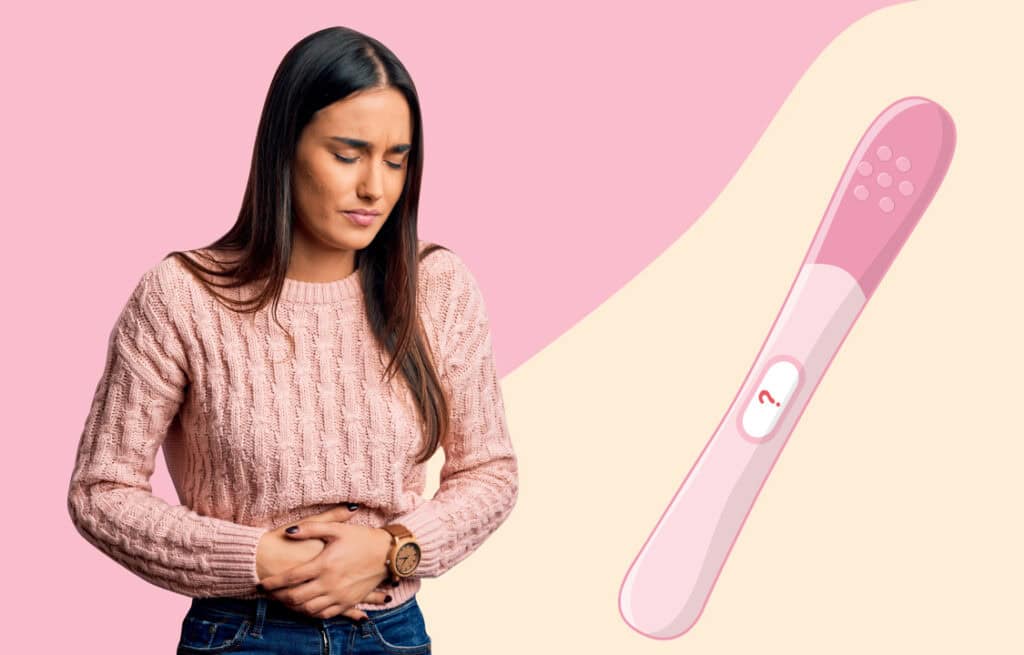
Learn to detect ovulation pain as a sign of your fertile window to increase your chances of pregnancy success.
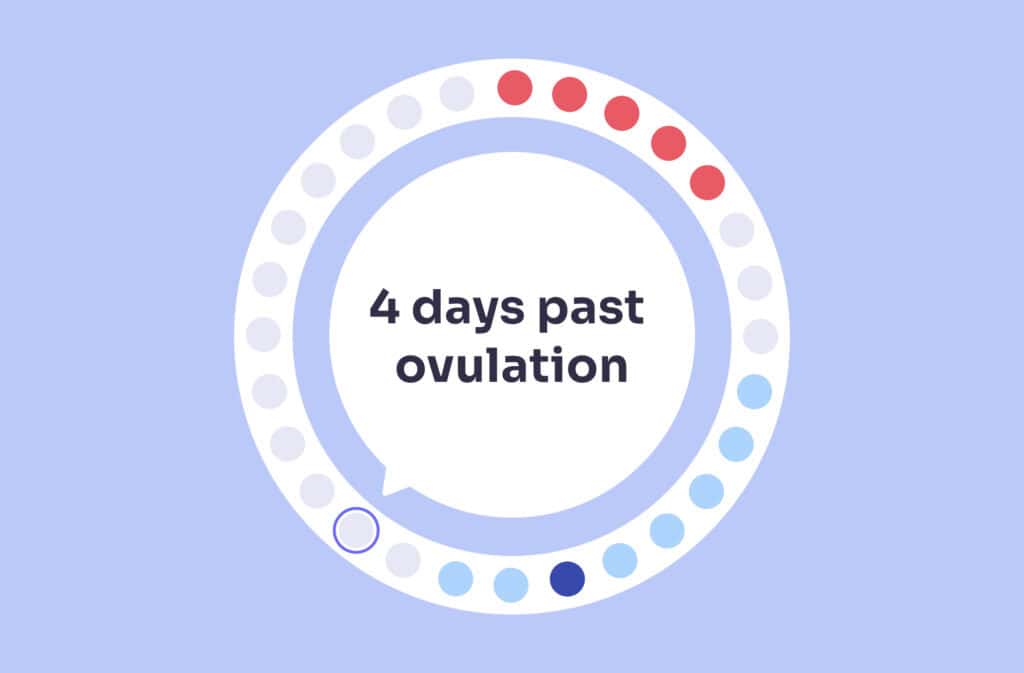
Understand what happens at 4 days past ovulation (4 DPO), including common pregnancy symptoms and when to take a pregnancy test. Expert advice from Femia.
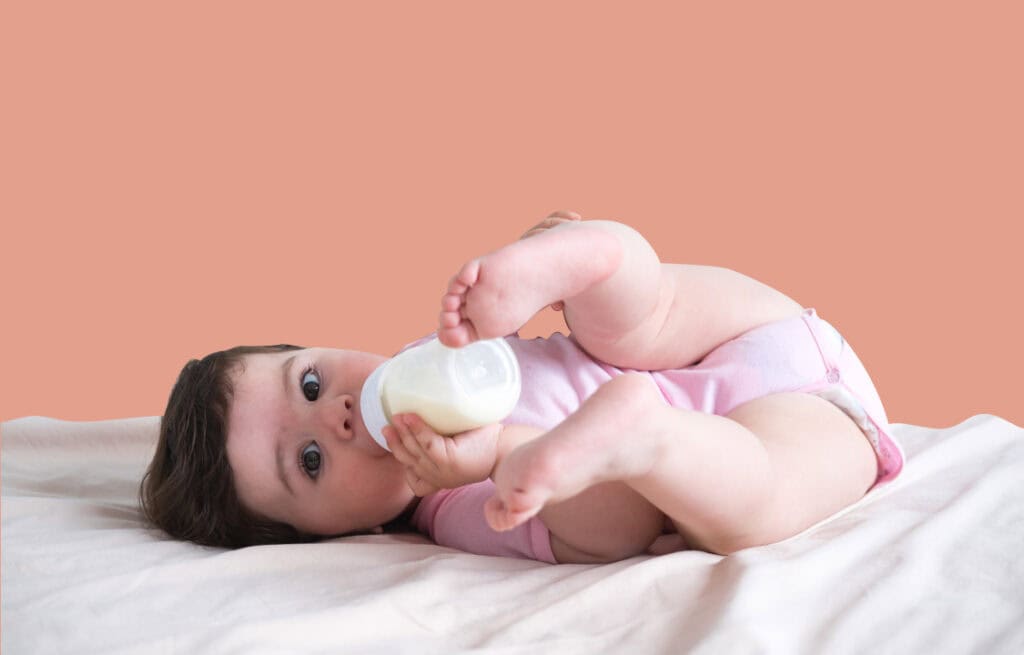
What is newborn milk tongue and how to tell the difference between milk tongue vs thrush? Learn all about baby milk tongue and how to get rid of white tongue on baby.

